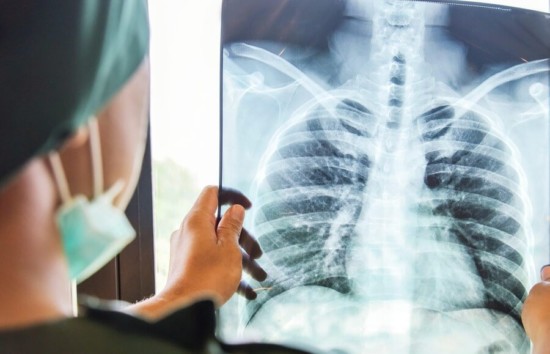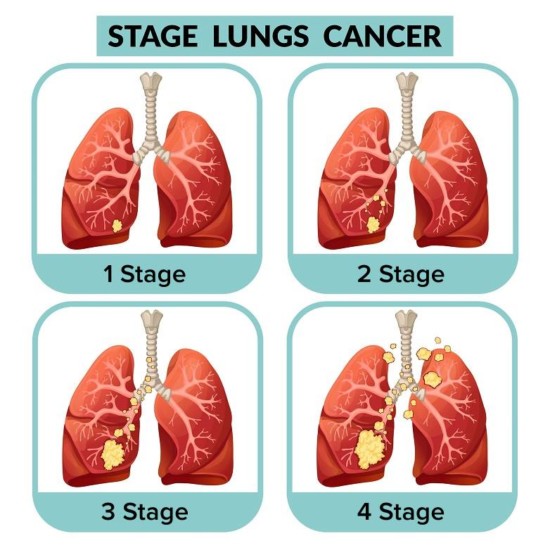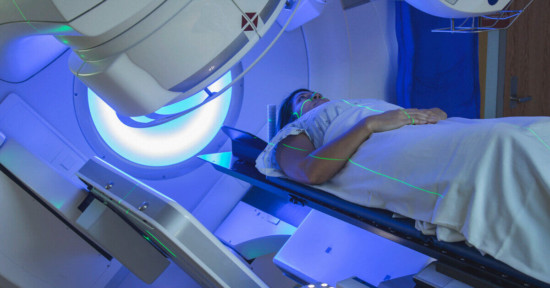Calls for Ukraine
Calls for Europe
Calls for USA

Lung cancer is a malignant tumor that forms from the epithelial cells of the bronchi. Most often, the neoplasm occurs in the right lung and affects the upper respiratory tract — the pharynx, larynx and subglottic trachea. Standard treatment protocols do not always give a favorable result and require individual solutions in each case. The combination of modern methods of surgical treatment together with innovative therapy gives the patient a chance for a full recovery without relapse.
Researchers at the International Agency for research on cancer estimate that cancer cases will grow 45-47% by 2040. These indicators are influenced by the living conditions of people and the ability of the healthcare system to control the situation related to cancer.
The most common causes of lung cancer are:
The main risk factor for lung cancer is inhalation of carcinogens. About 90% of all cases of bronchogenic carcinoma are associated with smoking, namely with the action of carcinogens contained in the smoke of tobacco products.
Experts attribute the patient’s age to an indirect factor in the development of lung oncology. According to statistics, the disease is most often diagnosed in people 55-75 years old.
The disease is difficult to identify, because at the very initial stage it develops asymptomatically. At stage 2A, lung cancer does not have a direct symptomatology with the respiratory system, so it cannot be recognized based on general complaints.
Typical manifestations of lung cancer, in which you need to urgently consult an oncologist:
Indirect signs may indicate the development of lung cancer: lethargy, apathy, a slight increase in body temperature. Subfebrile temperature (about 37.3° C) can mask cancer as sluggish bronchitis or pneumonia.
Advanced lung cancer in later stages is manifested by:

The scope of examinations depends on the capabilities of a particular medical institution: equipping with diagnostic devices and the availability of modern laboratories. Most hospitals in the CIS countries lack modernized equipment for detailed examination of patients with cancer diagnoses.
In 50% of cases, the neoplasm in the lungs is secondary. That is, initially a cancerous tumor arose in another organ — more often in the mammary gland or intestines. Therefore, when it is necessary to conduct a thorough study not only of the lungs, but also of the neighboring structures.
Qualitative diagnostics for lung cancer includes:
The most important stage of diagnostics in foreign clinics is PET-CT. This is a key examination method, without which the oncologist will not make decisions about the stage of the cancer and the methods of treatment. PET-CT allows the doctor to see the localization of even small metastases up to 3 mm in size.
Examples of the cost of PET-CT examinations for lung cancer in different countries:
In 80% of cases with lung oncology, a non-small cell type of cancer occurs. Small cell cancer accounts for about 20% of all lung cancers.
All statistics are approximate, as they include individual factors for the development of the disease, the general condition of the patient and the methods of therapy used. Five-year survival at stage 1 is 60% of cases with non-small cell cancer, for small cell cancer — 40%, at stage 2 — 40% and 20%, at stage 3 — 5% and 15%, at stage 4 — 5% and 10%.
If patients are susceptible to pembrolizumab (trade name Keytruda), immunotherapy can prolong life by several years. Immunotherapy drugs have been shown to be effective against mutations in cancer cells, and are used abroad in addition to standard treatment protocols.

Oncologists identify 4 stages of lung cancer. The duration of this or that stage is individual in each case. It depends on the type of tumor and its growth rate.
The disease is characterized by the following stages of neoplasm development:
Depending on the type of malignant cells, lung cancer is divided into 2 types: small cell (SCLC) and non-small cell (NSCLC). They differ in the nature of the manifestation of the disease and the response to the treatment program.

Depending on the patient’s condition, the type and stage of lung cancer, doctors prescribe a combination of treatments. As a rule, this is surgery and various types of therapy.
Surgery
During the operation, the malignant tumor is removed with part of the lung. In some cases, surgeons perform complete removal of the lung. With metastases, regional lymph nodes are also removed.
Types of surgical interventions:
Chemotherapy
Therapy with special drugs can stop the division and growth of cancer cells. The patient takes chemotherapy drugs in tablet form or through intravenous injections.
Chemotherapy for lung cancer is used to:
Radiotherapy
The method of treatment consists in exposing the tumor to ionizing radiation. Radiation therapy for lung cancer is carried out using special installations — linear accelerators.
Radiotherapy for lung cancer is indicated for patients:
Modern radiation therapy options:
The combination of treatment methods may differ depending on the individual manifestation of the disease: the severity of symptoms, the size of the tumor and the degree of damage to adjacent structures. International treatment protocols have been developed for each stage and type of lung cancer.
Stage 1
Non-small cell carcinoma:
Small cell carcinoma:
Stage 2
Non-small cell carcinoma:
Small cell carcinoma:
Stage 3
Non-small cell carcinoma:
Small cell carcinoma: options for combinations of radiation, chemotherapy, immuno- and targeted therapy.
Stage 4
Most often, patients with stage 4 lung cancer are shown chemotherapy in combination with treatment with immunologic drugs. To relieve symptoms and reduce the rate of tumor growth, doctors additionally use radiation therapy.
The effectiveness of treatment depends on the exact diagnosis. Modern devices allow doctors to conduct a detailed examination of the body and identify the slightest deviations from the norm. This is especially important in lung cancer, since metastases can spread to the brain and lead to irreversible consequences.
Innovative examination methods for effective treatment of bronchogenic carcinoma
Thanks to special genetic tests, foreign oncologists can determine the degree of tumor malignancy and the rate of its growth. Such an analysis allows the doctor to identify a genetic mutation and choose the best targeted drug or immunotherapy that does not have pronounced side effects, unlike chemotherapy.
In advanced stages of lung cancer, doctors abroad perform scintigraphy on patients. This is a modern method of radiation diagnostics, thanks to which the smallest metastases in the bones can be detected.
Although targeted and immune therapies are not new treatments, they are not available in all healthcare settings. Leading cancer centers in Europe, Israel, Turkey and the United States use modernized drugs for targeted and immunotherapy.
The following modern methods of lung cancer treatment are available in foreign oncology clinics:
The cost of treating pulmonary carcinoma is individual for each patient. The price will depend on the complex of prescribed diagnostic procedures, therapy options and surgical techniques.
Examples of the cost of treatment in clinics in different countries
Targeted drug therapy includes: the cost of the medicine prescribed by the oncologist, nursing care (may be paid separately according to the terms of the clinic). Targeted therapy prices may differ depending on the specific drug and the duration of its use. The cost of targeted therapy in hospitals in Israel, Turkey, Italy, Germany and a number of other countries will range from $1 200 to $10 000.
Radiation therapy for lung cancer in Turkish hospitals costs from $6 000. In Israel, Germany, Spain, South Korea — from $8 000. The final cost of radiation therapy will be formed based on the installation used by the doctor and how many radiation sessions the patient has to undergo.
As a rule, in the treatment of oncological diseases, the patient stays in the hospital from several weeks to several months. The cost of lung cancer therapy is added to the cost of living in the clinic or in a nearby hotel.
Inpatient day at the clinic for patients with oncology:
It is very difficult to make an accurate prognosis at one stage or another of the disease. This is due to the structural features of cancer cells and their different growth rates.
The prognosis for lung cancer depends on the following factors:
Please rate the work of MedTour
